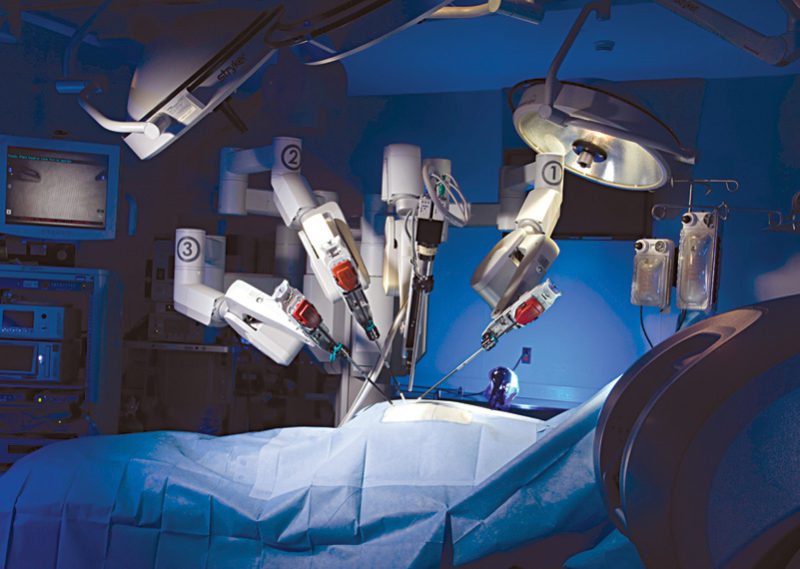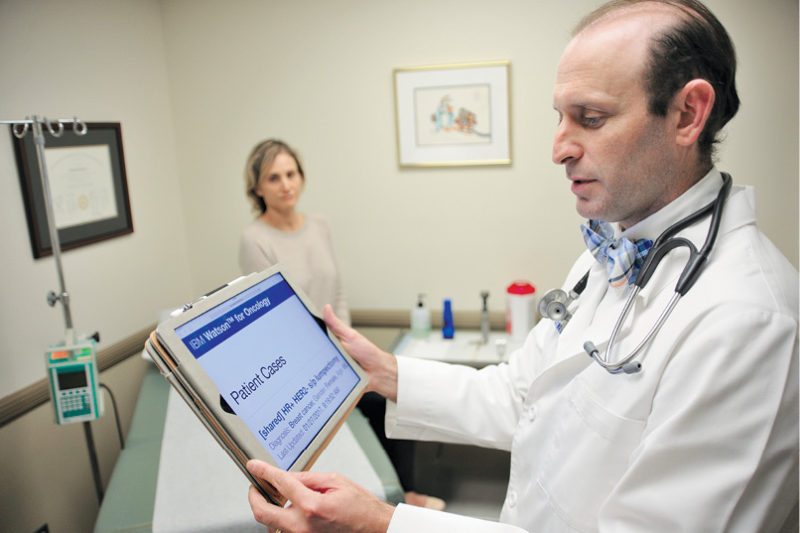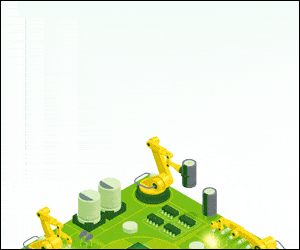- The need for Big Data analytics is huge, as it is expected to change the way healthcare works
Back in 1970s, when MYCIN—an early backward chaining expert system for identifying bacteria that caused severe infections and for recommending the right dosage of antibiotics in accordance with the patient’s body weight—was developed using AI in Standford University, USA, healthcare experts knew they had achieved a milestone in the history of healthcare. Since then, there has been no looking back.
Enterprises have since been focusing on using AI in healthcare. “The global healthcare industry is making significant strides in the field of AI. There are many startups as well as large players like IBM and Google who are working in the space,” says Dr Pinak Shrikhande, principal at HealthQuad, a venture capital fund that specifically invests in early-stage healthcare companies in India.
AI in India is gaining popularity as many startups have been mushrooming in the healthcare space.
Reading Big Data
Healthcare industry is probably one of the few industries that generates enormous amounts of data. Thus, the need for Big Data analytics is huge, as it is expected to change the way healthcare works. Douglas Adamson, chief technology officer – CSO, Health Catalyst, says that, most of the data that is collected is not used entirely.
“In healthcare, we have large volumes of data coming in. Electronic medical records alone collect huge amounts of data. But neither the volume nor the velocity of data in healthcare is truly high enough to require Big Data today,” he explains in his article published in Health Catalyst.
However, that does not mean that he is suggesting Big Data analytics to be written off completely. In fact, it is just the opposite. Let us talk about IBM Watson for Oncology. “IBM Watson for Oncology has an advanced ability to analyse the meaning and context of structured and unstructured data in clinical notes and reports that may be critical to selecting a treatment pathway. Then by combining attributes from the patient’s file with clinical expertise, external research and data, the program identifies potential treatment plans for a patient,” Dr Shrikhande points out.
Interestingly, world-renowned oncologist Dr Lukas Wartman, assistant director of cancer genomics at Washington University in St. Louis, USA, turned to Watson, IBM’s AI system, to get rid of his own cancer, which he had developed while studying this disease. Dr Wartman had developed acute lymphoblastic leukemia, and was at a loss when he ran out of all traditional treatment options. It is then that he and his team used Watson to conduct a full genome sequencing of his healthy and cancer cells. The sequencing also revealed the best possible medicine that could be used to treat his cancer.

The outcome was quite stunning. Dr Wartman was cured but with a few side-effects. AI had detected the exact nature of the cancer and had recommended a drug that is normally used for kidney cancer as the cure. Since then, Watson for Cancer is being looked upon as a saviour in cancer cases.
In fact, Manipal Hospital in India has adopted this technology to offer the best cancer care to patients. Oncologists at the hospital upload the patient’s DNA fingerprint of the tumour along with an indication towards cancerous cells. Watson scans through the entire sequence to detect the cancer-causing mutation and suggests a plausible cure. This way Watson is helping doctors offer the most effective treatments to cancer patients at the hospital.
A technology such as IBM’s Watson can be a game changer in a country like India if it is available at an affordable price, as almost 700,000 people die of this deadly disease every year.
Diagnostics
Many healthcare startups are using deep learning to minimise the need for expertise in using technologies. Ultrasound technology is widely used in the diagnosis and monitoring of one’s health condition. However, after almost 80 years of its invention, ultrasound machines continue to be expensive and cumbersome, and their usage requires extensive training.
A few startups that have been toying with AI have used deep learning to substantially change the way medical imaging is done. For instance, New York based Butterfly Network has used deep learning in developing a single silicon chip that takes images and is portable. The chip’s onboard deep learning configuration allows it to guide technicians and clinicians to use ultrasound easily while also making it inexpensive for healthcare centres.
Another startup that has been using deep learning in its products is Imagen Technologies, a medical imaging diagnostic group. The company is developing a software that will use AI to detect and reduce diagnostic errors in the images it scans. The software will detect clinically-meaningful pathologies within the images to help doctors prepare a more accurate report.
There are several other startups that are enabling software with deep learning that could considerably improve diagnostics segment, thus making way for better and effective treatments.
AI in India
Taking a cue from its global counterpart, the Indian healthcare sector is witnessing a gradual adoption of AI in its services. For instance, SigTuple, an AI startup, was founded in 2015 with the aim of improving diagnostics and treatments offered by healthcare centres in the country. The company has created Shonit, an AI based digital system that analyses the images of blood cells to diagnose the disease.
“When I first heard about digital image analysis using AI and its intended use in routine haematology reporting, I was very excited, but simultaneously I had my critical views,” says Dr Preethi S. Chari, consulting pathologist, Anand Diagnostics Laboratories, in her blog.

In her blog, she explains that Shonit views and then analyses the morphology of blood cells, identifies large platelets, malarial parasites and other crucial information that makes the final report extremely informative. “The intended use of this software in our laboratory is to analyse all cases for which slides are made and viewed on the computer (instead of a microscope). The images and other morphological parameters are correlated with the counts obtained by the cell counter. In most cases, a good correlation can be found. For example when the cell counter-flags for monocytosis and Shonit shows a high monocytes count along with images of monocytes, the report can be finalised at this level. If there is a discrepancy or suspicion of abnormal or atypical cell, the slide is viewed under microscope,” she adds.
Another startup Practo is betting big on AI to better assist doctors in their clinical assessments. The company, which has raised US$ 55 million, will be using part of its funding for research and development in AI for doctors.
Then there is healthcare startup HealthGenNext that uses AI to detect diseases using deep learning techniques.
However, while several startups are coming up with solutions using AI for the healthcare industry, the willingness to accept these solutions is still nascent. Besides, affordability is a major factor in adoption of these solutions. To conclude, once startups are able to provide these solutions at an affordable price, we will witness a paradigm shift in our healthcare industry.
Purba Das, senior business journalist, EFY




